Energy management in the materials industry
Smart control of energy-intensive plants for greater competitiveness
The challenges of the materials industry
Extremely high
energy consumption
Dependence on expensive gas
Difficult integration of cheap renewables
Lack of transparency in industrial plants
Materials industry use cases
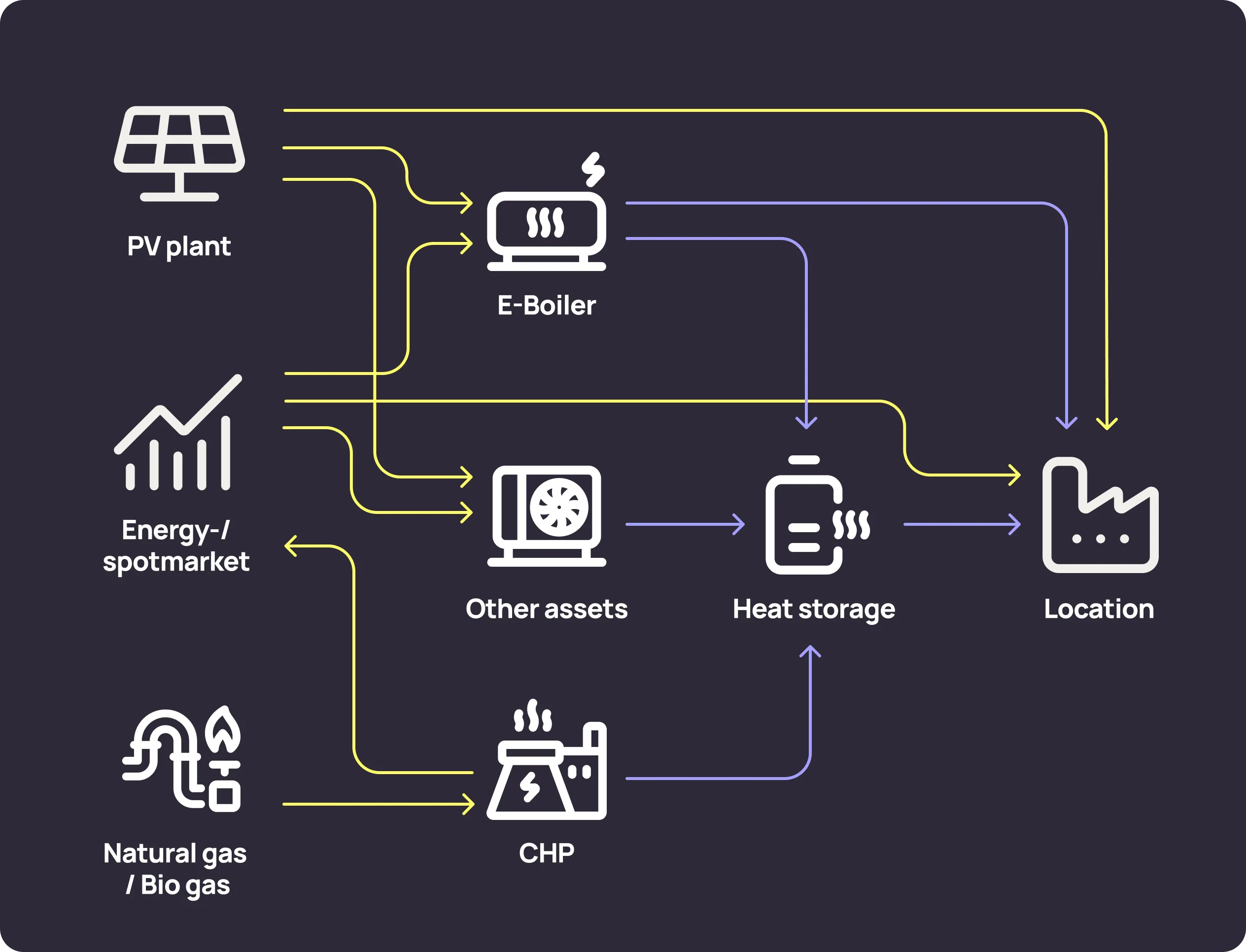
Orchestration of heat generators
Our AI-based energy management platform calculates cost-optimised schedules for your heat generation plants and plant networks such as CHP, cogeneration or power-to-heat units. The flexOn energy management platform takes into account both dynamic fuel prices and your own energy generation. It coordinates the various energy flows so that your plants always run according to the most cost-effective schedule.
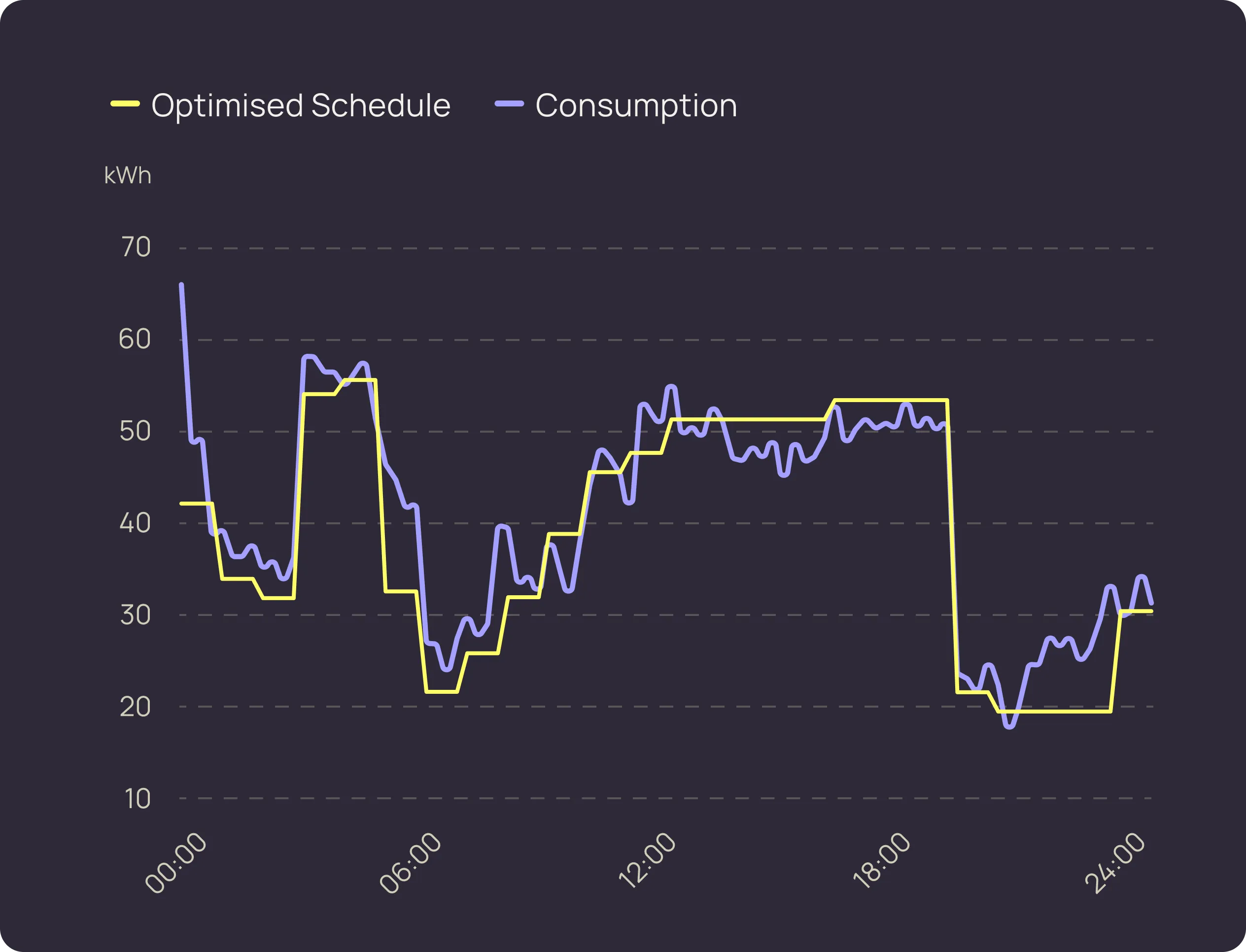
Automated optimisation
In addition to managing heat generation, the smart energy management platform flexOn also optimises and controls other adjustable loads such as shredders, rollers or pumps. flexOn’s operating schedules for your systems can be tailored to different objectives. These include increasing on-site renewable energy generation, achieving atypical grid usage, optimising spot market participation and improving overall efficiency.
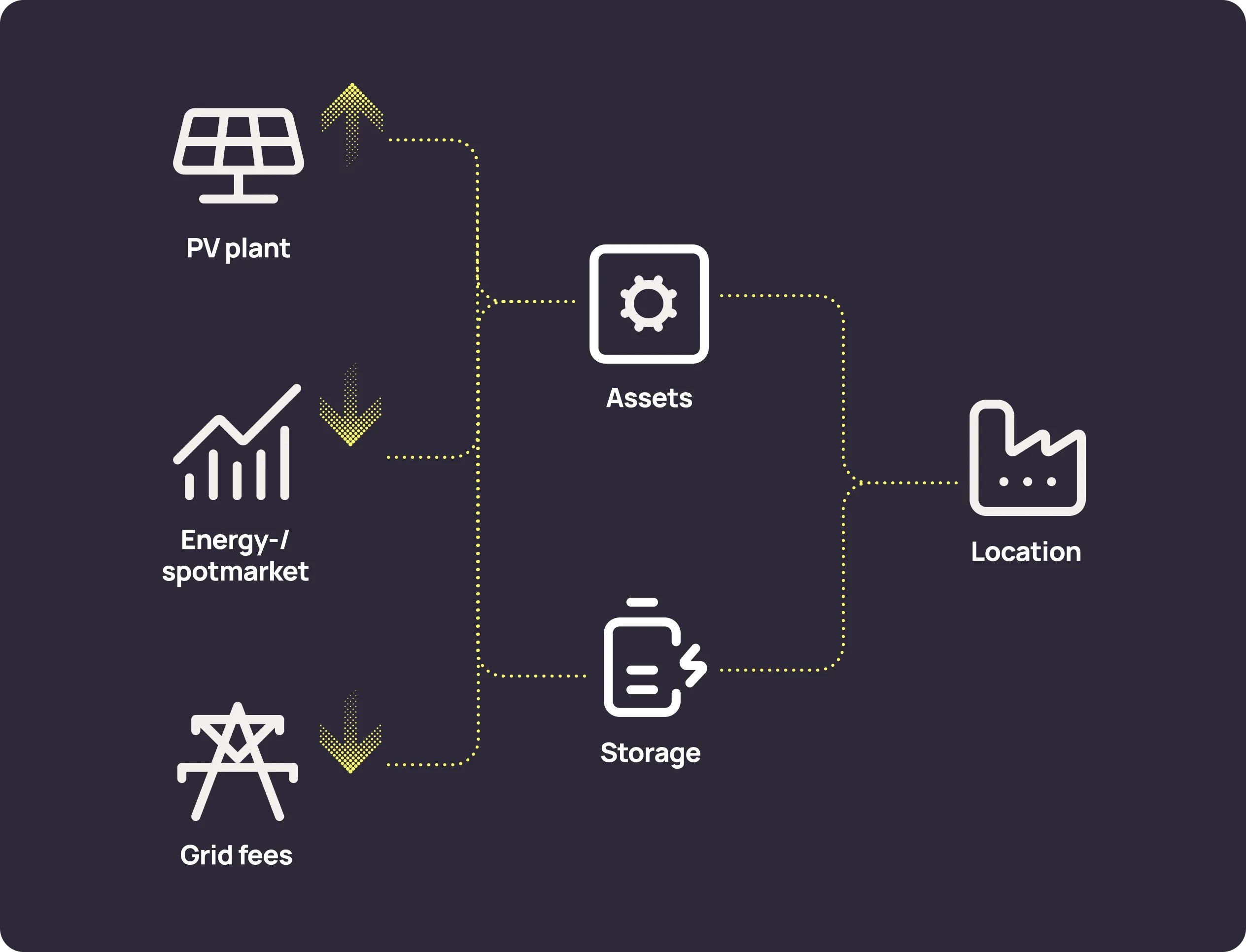
Multi-Use-Ansatz von Batteriespeichern
Thanks to our smart energy management platform, you can fully harness the potential of your battery storage system behind the meter. With the multi-use approach, your storage unit is utilised in various ways — for example, to optimise self-consumption or achieve atypical grid usage. The overarching goal of smart energy management in the materials industry is always to minimise your energy costs.
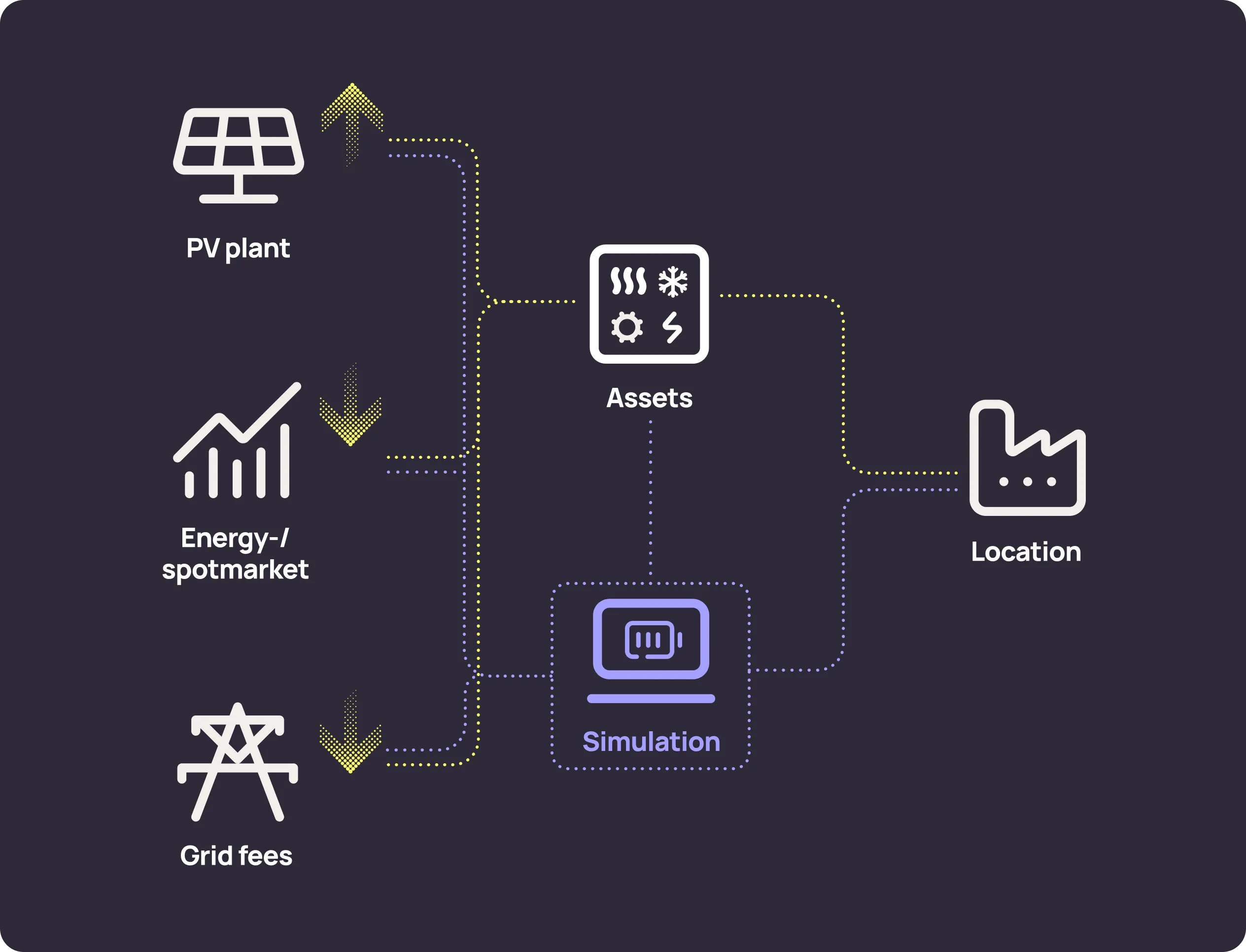
Real-time simulation of complex energy systems and storage
Are you assessing whether electrifying your heat generation or investing in storage or buffering solutions is worthwhile? The real-time simulation feature of our smart energy management system for the materials industry supports your decision-making process. Using your live data, our flexOn platform generates multi-scenario analyses that enable you to make well-informed investment decisions.
Stimmen aus der Praxis
„Mit dem Einsatz der neuen Energiemanagementlösung von encentive erhoffen wir uns eine verbesserte Integration unserer Eigenenergieerzeugung mit dem Ergebnis einer maximalen Eigenenergienutzung."


Achieve your goals
with flexOn

Electrify your heat
We support you in electrifying your heat supply through the fully automated coordination of your various heat generation systems.

Flexibilise your consumption
Automatically align your energy consumption with power generation and spot market prices – fully automated with flexOn.

Increase your ROI
By optimising and automatically controlling your systems, you can fully harness the potential of your PV installations and storage units, increasing your cost efficiency.

Develop your storage strategy
Our smart energy management simulates the use of an energy storage system at your site – enabling well-informed investment decisions.
Energy management in action
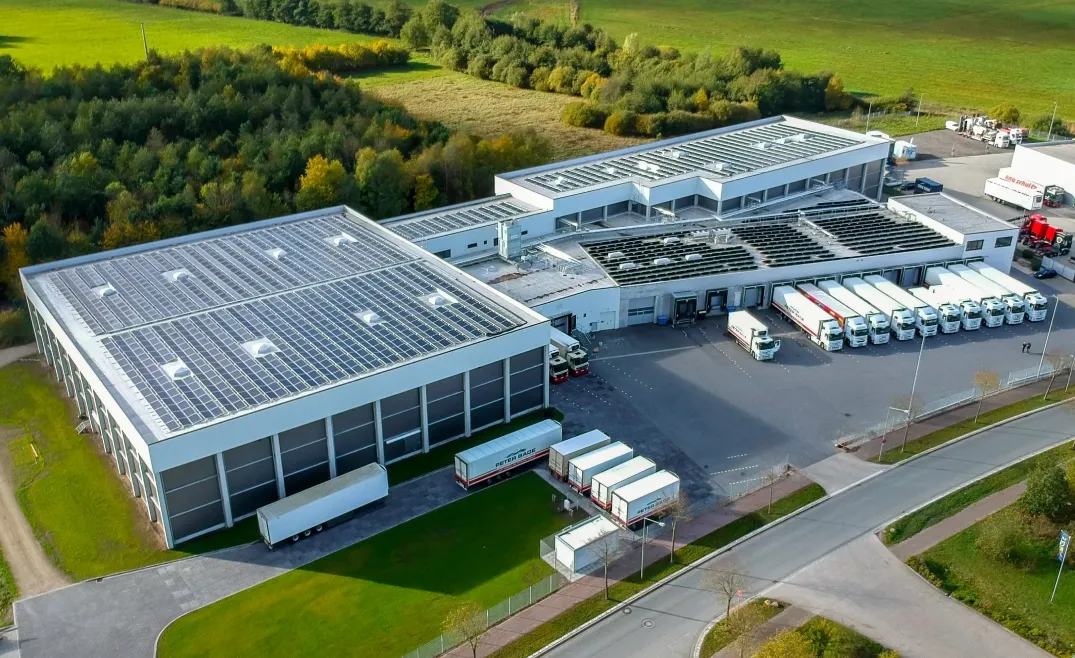
Peter Bade GmbH
Before flexOn, Peter Bade GmbH lacked visibility of its energy flows. With our smart energy management system, the company overcame these challenges, increased self-consumption of its solar installation, and achieved significant savings.
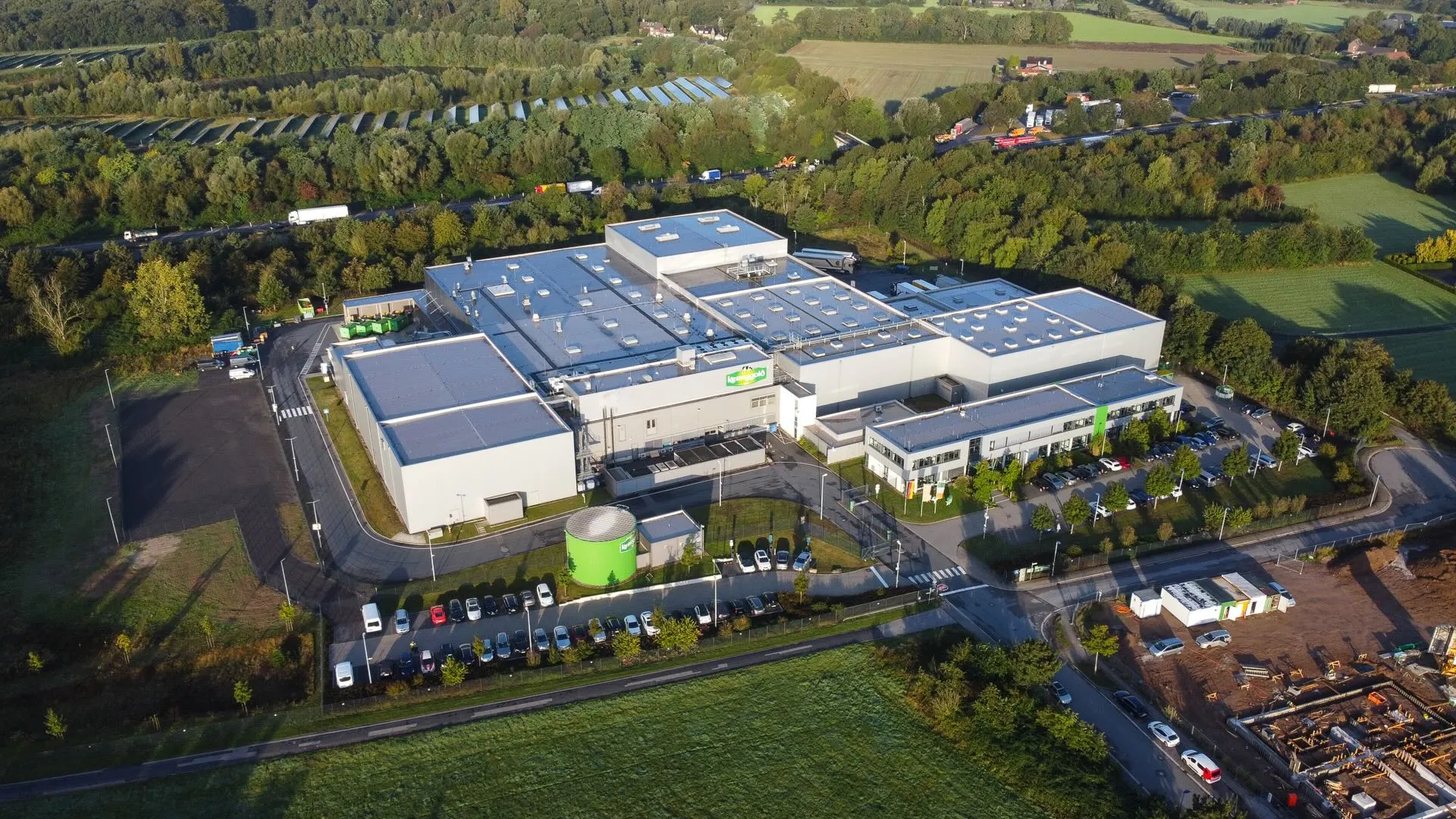
Ornua Deutschland
The Ornua case demonstrates how existing infrastructure can be used smartly. The smart energy management system flexOn transforms cold storage and electric boilers into dynamic energy storage that responds flexibly to market prices. The result: lower energy costs and improved ROI.

Backshop Tiefkühl
Backshop Tiefkühl’s previous energy management system could no longer keep up with rising demands. The company therefore chose the smart platform flexOn, which increases self-consumption of the solar installation and reduces energy use – a sustainable and economical solution.








